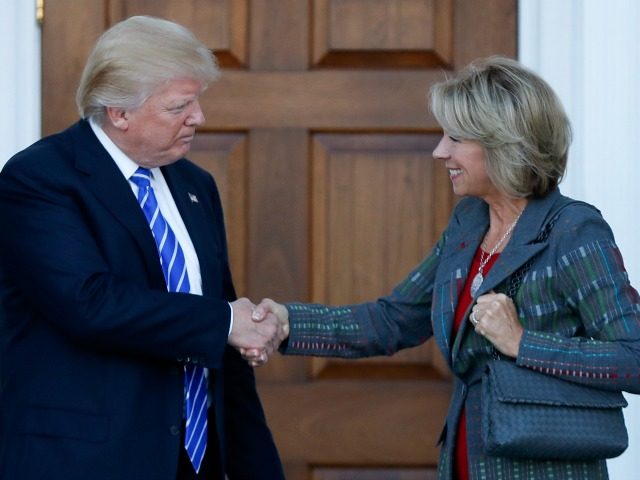Source: Embracing school choice doesn’t mean abandoning public education | Washington Examiner
Betsy DeVos, President-elect Trump’s nominee to serve as secretary of education, will begin her Senate confirmation hearings Tuesday evening. The nomination of DeVos, who supports school choice, has renewed the national discussion over the importance of opportunity in K-12 education.
If you were to listen only to the national-level discussion over the issue, you might think school choice is wildly controversial. But in many states across the country, that’s not the case. Much of the “controversy” over school choice has largely ebbed.
Why? Because as parents and state lawmakers understand, school choice simply means empowering parents to choose from a variety of educational options for their children, including traditional public schools, public magnet schools, online academies, private schools and homeschooling. It does not mean promoting one type of education over another.
Any controversy surrounding school choice is usually the result of misconceptions.
For example, some national pundits have said that embracing school choice somehow means abandoning public education. The opposite is true.
Supporters of school choice want strong public schools, because these schools provide essential options for many families. That’s why school choice supporters champion open enrollment policies, which allow parents to choose from any traditional public school, regardless of zone or district. Forty-six states now have some type of open enrollment policy.
In fact, the majority of school choices are actually within the public sector. For example, all 3,200 magnet schools in our nation are fully public schools that charge no tuition. Public charter schools are also tuition-free public schools, not private entities. In 41 states, students can attend statewide tuition-free online public academies.
In states that have long embraced school choice, like Arizona and Florida, the concept is widely embraced by traditional public school leaders, who regularly hold school choice fairs and special events to promote their schools to parents and students.
Just this weekend in northwest Arkansas, for example, nearly 1,000 parents and students attended a school fair in Springdale. Traditional public schools, charter schools, magnet schools and private schools all set up booths to educate families. Every option is important because every child’s needs are different. Events like these are a reminder that education isn’t just about policy, it’s about people’s lives.
 Listen Online
Listen Online Watch Online
Watch Online Find a Station in Your Area
Find a Station in Your Area










 Listen Now
Listen Now Watch Online
Watch Online
